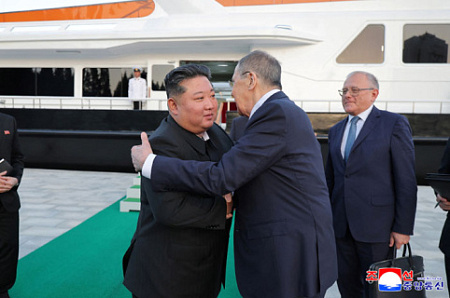
In a carefully orchestrated diplomatic gesture, North Korean leader Kim Jong Un has paid public homage to the Chinese soldiers who fought in the Korean War. The move is widely seen as a delicate balancing act, coming at a time when Pyongyang is forging an ever-deeper military and strategic partnership with Moscow, fueling speculation about the emergence of a new anti-Western bloc in Northeast Asia.
Kim’s tribute to the ‘blood-sealed’ friendship with China follows the landmark signing of a comprehensive strategic partnership treaty with Russia earlier this year, a pact that includes a mutual defense clause committing each side to assist the other in the event of an attack. This development has reportedly caused unease in Beijing, which, despite having its own 1961 mutual defense treaty with Pyongyang, has watched its neighbor’s rapid rapprochement with Russia with caution, particularly amid Western reports of North Korean troops being sent to support Moscow’s war effort in Ukraine.
The ceremony at the Friendship Tower in Pyongyang, marking the 72nd anniversary of the Korean War armistice, was rich with symbolism. Kim’s tribute honored the ‘Chinese People’s Volunteers’ whose intervention saved the nascent North Korean state from defeat. It served as a powerful reminder to Beijing of their shared history and sacrifices, an apparent effort to reassure his country’s traditional ally that its deepening ties with Russia do not come at China’s expense.
Analysts interpret Kim’s actions as a masterful navigation of his relationships with two powerful neighbors. While Russia has become a vital de facto ally, providing advanced military technology and diplomatic cover, China remains North Korea’s sole formal treaty ally and primary economic lifeline. According to regional experts, Kim is striving to maintain equilibrium, leveraging both relationships to maximize his strategic autonomy without alienating either patron.
Despite the strengthening ties, the prospect of a formal trilateral military alliance between Moscow, Beijing, and Pyongyang remains remote. Experts argue that the core interests of the three nations are not perfectly aligned. China and Russia do not share a mutual defense pact, and Beijing is seen as reluctant to be drawn into a rigid bloc that could jeopardize its global economic ties. While Pyongyang forges ahead with Moscow, its recent overture to Beijing underscores a complex reality: North Korea is skillfully playing its two major partners to enhance its own security, creating a new, fluid dynamic that stops short of a formal three-way axis but still poses a significant challenge to the U.S.-led order in Asia.
